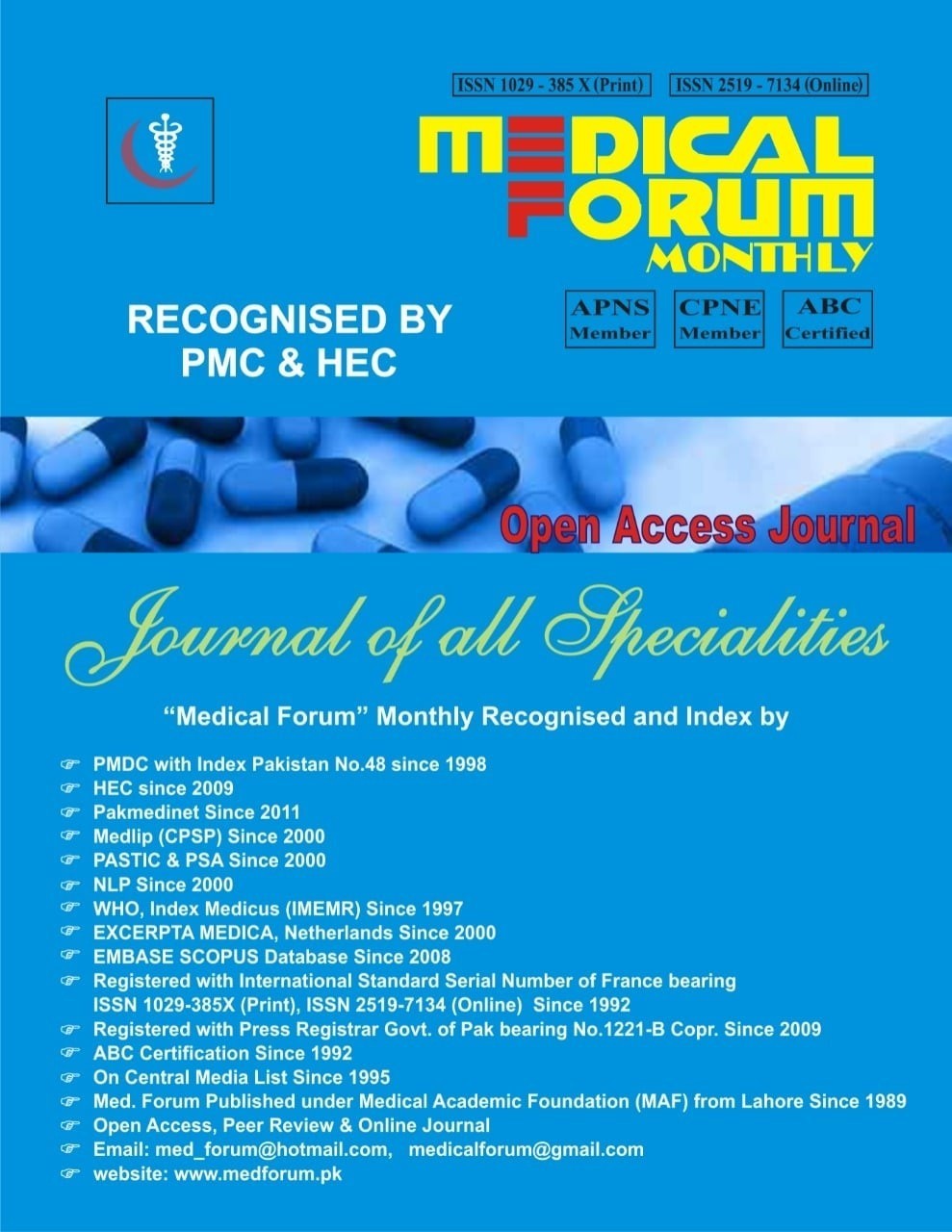
5.Prediction of Oral Cancer Survival Utilizing Micro RNA 21 and Clinicopathological Variables
Nosheen Mehmood1, Humera Akhlaq2, Qamar Jamal1, Isma Sajjad3 and Sajid Hanif2
ABSTRACT
Objective: To investigate the impact of various socio demographic, clinical/pathological and novel miRNA biomarkers on oral cancer survival.
Study Design: Prospective cohort study
Place and Duration of Study: This study was conducted at the Department of Pathology, Ziauddin Hospital, Karachi, Pakistan from January 2014 to January 2020.
Materials and Methods: The data were obtained from 146 consecutive biopsy proven oral squamous cell carcinoma patients falling in an age bracket of 20 to 80 years. Association of variables with the survival was made through student’s t test for continuous variables and chi square test for qualitative variables. Survival analysis was done via cox regression. Survival curves were plotted via Kaplan-Meier method using the Log-rank test. All statistical analysis was carried out on SPSS version 24.
Results: Overall survival was 43.8%. Cox regression analysis demonstrated miRNA 21 overexpression was linked to poor survival with a Hazard risk (HR) of 0.929, P<0.005. Other significant predictors included tumor grade (HR of 1.77, P< 0.001), nodal metastasis (HR of 9.4, p<0.01), advance stage (HR of 2.8, P<0.001 and age in years (HR of 1.02, p<0.01)
Conclusion: In this cohort we observed overexpression miRNA-21 was an independent prognostic factor suggesting it as a potential biomarker predicting poor survival. Furthermore, advancing age, nodal metastasis, poor grade, and advanced stage impacted poor survival in Oral Squamous cell carcinoma.
Key Words: Oral cancer, survival analysis, prognostic factors, miR-21
Citation of article: Mehmood N, Akhlaq H, Jamal Q, Sajjad I, Hanif S. Prediction of Oral Cancer Survival Utilizing Micro RNA 21 and Clinicopathological Variables. Med Forum 2021;32(10):20-24.
